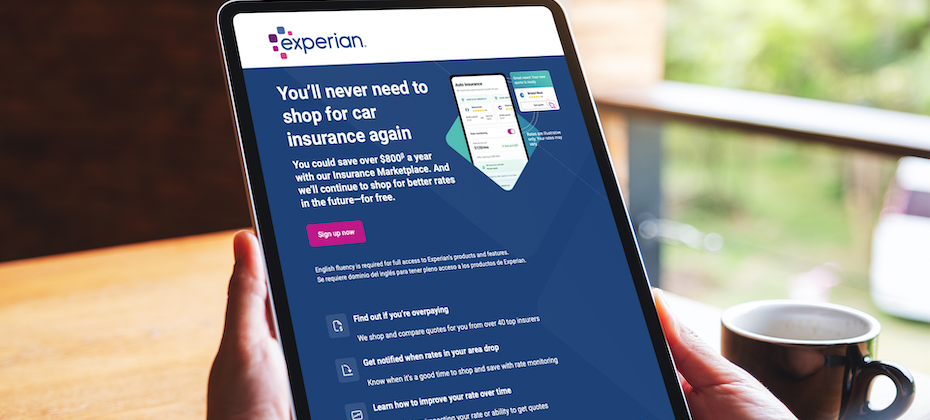
Even though 26 states now have a personal finance course as a requirement for high school graduation, 40 percent of college students do not feel they have enough knowledge about how to manage money. It’s a challenge that the Center for Financial Advancement® (CFA) Credit Academy addresses with participating Historically Black Colleges and Universities (HBCUs). A collaboration between Experian and HomeFree-USA, the program culminates in the #IYKYK (If You Know You Know) Pitch Competition and a couple hundred new knowledge ambassadors about financial health and credit. Here, competition finalists share their advice for students as they hit campus for a new school year: MALAYA MELTON, Alabama State University Advice I'll give to incoming freshmen is to try to apply for scholarships. It takes some of the burden off. For me, I took about two years making sure that I got the right amount of scholarships before coming to school, because I knew that I wouldn't be able to afford it. My family won't be able to afford it. So, try to be very serious about applying for scholarships, and apply to internships that also get you money that you can use towards school or your personal development. JAZMIN FELIZ ORELLANA, Bowie State University Don't take out loans if you don't have to. I think many freshmen forget that they'll have to pay off those loans once they graduate after a certain time, and that definitely can affect their credit, especially if they're not able to pay for it. OLUWATOSIN OYEKEYE, Alabama State University Save your money, save your money, save your money. It's okay to go to a college in your hometown. Save as much money as you can, because you really don't know where you'll need it. If you get that credit card, make sure that you're paying all the payments on time. Do not wait till the last minute to pay it. PHILIP OMO-TAIGA, North Carolina A&T State University Budgeting. I think that's really what plays into the whole thing of credit, which is there obviously to help you. But it can also go really, really bad. When you think about what it takes to find that healthy balance, you got to learn how to budget because you may go through a period where you're not working. So now it's like, "Okay, now I got to leverage this money that I maybe have saved up. Maybe think about my credit so that I'm not burying myself into a hole. I'm not working, so there's no way I can pay it down." I think when it comes to finding that healthy medium, budgeting is definitely key. CALVIN CHARLES III, Bowie State University A secure credit card. I think freshman year is a great way to enter college (with one) because you're going to have items and things that you are going to have to pay for anyway. Why not begin building your credit there? I can personally say my first credit card I opened at 18, so that gave me the years of credit history. ESANTE-JOY MCINTYRE, North Carolina A&T State University It is never really how you start, but it's how you finish. Freshman year I might not have that scholarship. But I promise you by sophomore year I had $10,000 from outside scholarships, I had $10,000 from doing pitch competitions, $5,000 from here, from there. So, don't give up on the idea of searching. If you are able to search, you'll find it. Those opportunities and resources are out there, and Experian is just a testament to that.

More than two years ago, Experian expanded its consumer offerings to provide a free auto insurance comparison shopping service. As part of our mission of Financial Power to All™, Experian Consumer Services is continuously working to develop new products, services and features that help consumers reach their financial goals. Providing a convenient way for consumers to potentially find a better auto insurance rate on their current policy fit this bill. We’ve enhanced the service now offering a free Ongoing Rate Monitoring feature so Experian members never have to shop for auto insurance again. After enrolling in a free or paid Experian membership, the Experian Insurance Marketplace delivers at no cost, real-time, tailored rates from more than 40 top insurance providers. The Ongoing Rate Monitoring feature will continuously monitor rates and alert members if there is a better deal available on an ongoing basis. To date, Experian has saved members more than $800[i] on their current insurance policy. The marketplace became available at a critical time when rising inflation and interest rates were significantly impacting consumers’ finances – and it’s still the case today. One of the common expenses that has reportedly risen over the past 1-2 years the most is auto insurance by approximately 20 percent. Thus, it’s no surprise a recent Experian consumer survey shows 3 out of 4 of respondents are worried rates will increase in the next 12 months. We’re proud to be able to address consumer needs and deliver free resources like our marketplace that financially empowers our members. Consumers can also shop at the marketplace for home and renter insurance. To access the marketplace, click here. [i] Results will vary and some may not see savings. Average savings of $828 per year for customers who switched and saved with Experian from Jan. 1, 2022 to Mar. 31, 2024. Savings based on customers’ self-reported prior premium. Experian offers insurance from a network of top-rated insurance companies through its licensed subsidiary, Gabi Personal Insurance Agency, Inc.

Experian North America has once again proven its commitment to creating an exceptional workplace, earning a coveted spot on Fortune’s 2024 “Best Workplaces in Technology” list. This prestigious recognition showcases Experian’s dedication to cultivating a vibrant, innovative and inclusive culture where employees thrive. By prioritizing personal growth, diversity and overall well-being, Experian continues to stand out as a leader in the tech industry, ensuring its workforce remains at the heart of its success. A Testament to Experian’s Workplace Culture The Fortune Best Workplaces in Technology™ list, developed in partnership with Great Place to Work®, was based on surveys from more than 870,000 employees across various industries. Feedback captured factors like trust, respect, fairness and credibility, showcasing Experian’s efforts to build a culture where employees feel empowered and engaged. Innovation and Inclusivity Experian’s inclusion in the Large Workplace category reflects its commitment to fostering a collaborative environment. The company supports diversity through partnerships with AfroTech, Grace Hopper, Lesbians Who Tech and Out In Tech, further demonstrating its dedication to inclusivity. A Year of Notable Achievements In addition to the Fortune recognition, Experian earned a silver medal for innovation from Datos Insights and ranked 7th on the 2024 IDC FinTech Rankings, solidifying its leadership in data and technology. With more than 22,500 employees globally, Experian remains dedicated to innovation, employee development and helping businesses and consumers unlock opportunities.


